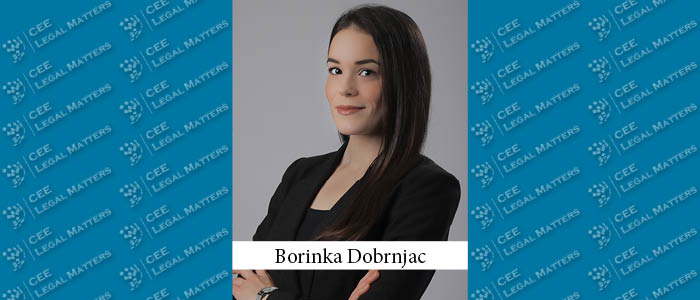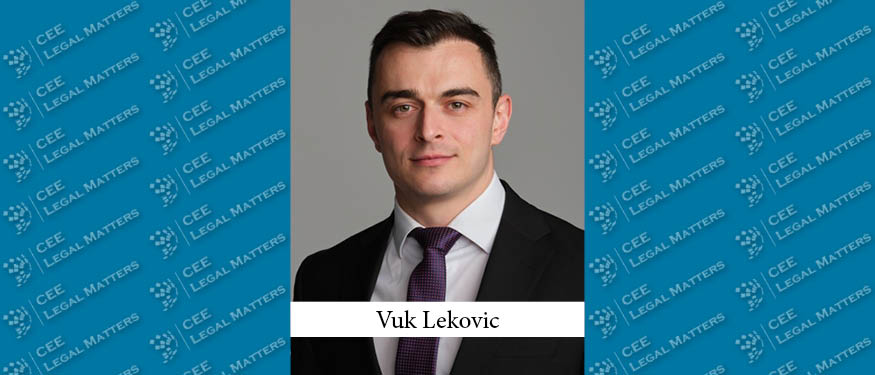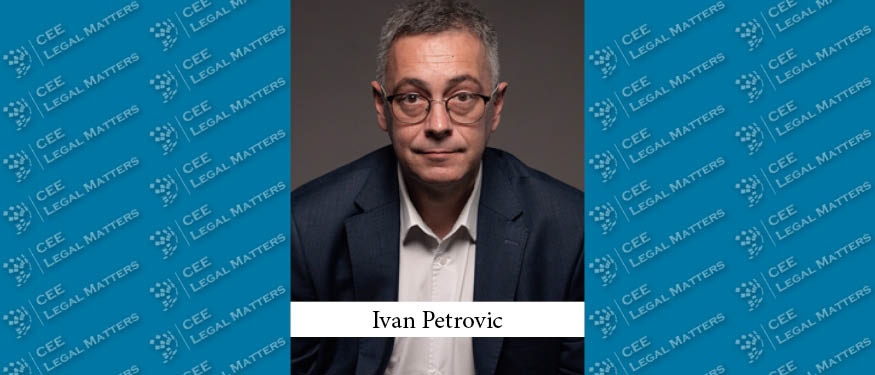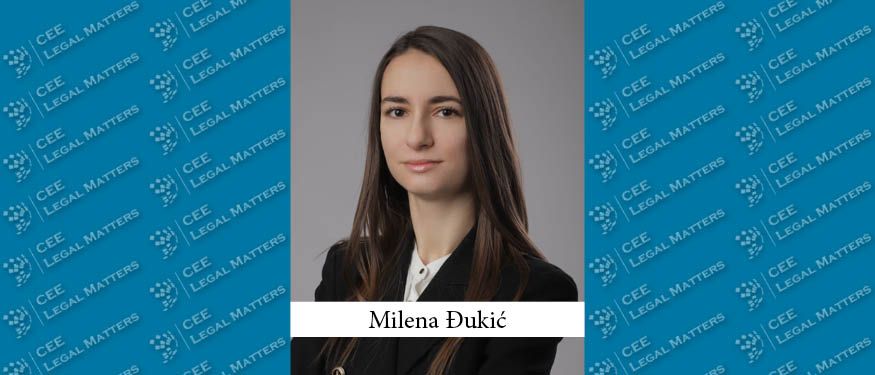The data subject has the right to access the data processed by the controller about them, a right guaranteed by both the EU General Data Protection Regulation (“GDPR”) of April 14, 2016, which came into force on May 25, 2018, and the Law on Personal Data Protection of the Republic of Serbia.
The Debrief: March 2025
In The Debrief, our Practice Leaders across CEE share updates on recent and upcoming legislation, consider the impact of recent court decisions, showcase landmark projects, and keep our readers apprised of the latest developments impacting their respective practice areas.
The Corner Office: The Next Big Thing
In The Corner Office, we ask Managing Partners at law firms across Central and Eastern Europe about their backgrounds, strategies, and responsibilities. This time around, we asked: For 2025, what is the one sector or industry in the country that shows the most promise for growth, and why?
Kinstellar Advises Banca Intesa on Mini Bond Launch in Serbia
Kinstellar has advised Banca Intesa Beograd on the introduction of mini bonds in Serbia.
Schoenherr Advises Hellman & Friedman on Investment in Mehilainen
Schoenherr, working with Kirkland & Ellis, has advised Hellman & Friedman on its joint investment with CVC in Mehilainen.
Jelena Obradovic Joins Bojanovic & Partners as Partner
Jelena Obradovic has joined Bojanovic & Partners as a Partner and will lead the firm's Competition and Corporate & Commercial departments. Joining alongside Obradovic are Senior Associate Andrea Fluture and Associate Milica Mijatovic.
Gecic Law Launches Sports Law Practice Group
Gecic Law has launched a Sports Law practice group led by Senior Associate Vuk Lekovic.
ZSP Advokati Advises Unija ETL on Acquisition of AccountTronic&Tax
ZSP Advokati has advised Unija ETL on its acquisition of a majority stake in Serbian accounting firm AccountTronic&Tax.
Deal Expanded: Telekom Srbija’s EUR 1.5 Billion Move Into Regional Content
On February 19, 2025, CEE Legal Matters reported that Gecic Law advised on Telekom Srbija's acquisition of NetTV Plus, Total TV operations in Serbia and North Macedonia, and Western Balkans Sport Klub rights licenses from United Group. The transaction with a combined enterprise value of EUR 1.5 billion is one of the largest telecom sector deals in Serbia and the broader Balkans region’s history. With the deal recently closed after securing merger clearances in four jurisdictions (Serbia, Bosnia and Herzegovina, Montenegro, and North Macedonia), Gecic Law Partners Bogdan Gecic, Ognjen Colic, and Miodrag Jevtic take a closer look at the deal.
ZSP Advokati Advises Unija ETL on Acquisition of Klaris NS
ZSP Advokati has advised Unija ETL on its acquisition of a majority stake in Serbian accounting firm Klaris NS. Sole practitioner Strahinja Selakovic reportedly advised the sellers.
Dejan Plamenac Becomes Managing Partner of Vukovic & Partners
Vukovic & Partners has appointed Dejan Plamenac as its new Managing Partner, succeeding Predrag Miladinovic.
Ikonic Stikovic Opens Doors in Belgrade
Dragan Ikonic and Mladen Stikovic have established the Ikonic Stikovic law firm in Belgrade.
The Epidemic of Generic: The Problem with Law Firm Messaging
Big law firms can coast on boring slogans. They’ve got the clout, the infrastructure, and the impressive list of past clients to do the talking. But if you’re a smaller firm and your website sounds like everyone else’s, you are disappearing into the beige background of legal marketing noise.
Applicability of Extension of Time in Construction Contract in Serbian Law
The Extension of Time (EoT) mechanism is widely used in construction contracts to account for delays beyond the contractor’s control. However, under Serbian law, EoT is not a legally enforceable right even if explicitly agreed upon by the contracting parties. Instead, the legal framework provides contractors with protection through liability release provisions rather than proactive EoT claims. While legal theory suggests that standalone EoT claims could be admissible under specific conditions, Serbian procedural law and court practice currently do not support such claims. This paper explores the interplay between contractual provisions, Serbian statutory law, and procedural rules affecting EoT claims.
Why Most Law Firm Websites Won’t Meet the 2025 Accessibility Deadline
The European Accessibility Act (EAA), approved in 2019, takes effect on June 28, 2025. The Act requires a wide range of products and services – such as consumer electronics, vending machines, websites, and mobile apps – to meet accessibility standards for people with disabilities.
Cvjeticanin & Partners Advises Institute of Technical Sciences of the Serbian Academy of Sciences and Arts on Patent Strategy
Cvjeticanin & Partners has successfully advised the Institute of Technical Sciences of the Serbian Academy of Sciences and Arts on its patent strategy under the ISEC research program.
Rights of Foreigners in Case of Employment Termination
When it comes to foreigners residing or planning to reside in the Republic of Serbia, the most common practical issue involves the procedure for issuing a single permit for residence and work in the Republic of Serbia (“Single permit”).
NKO Partners and Joksovic, Stojanovic & Partners Advise on Levante HC's Acquisition of Megapharm
NKO Partners has advised Levante HC on the acquisition of Megapharm Beograd. Joksovic, Stojanovic & Partners advised Megapharm.



















